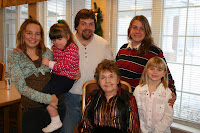
My God Box--Blog Tour
(Tackle It Tuesday: Making a difference!)
 Margaret Iuculano has made a difference. Her recently released book, My God Box, is the compelling story of her journey through foster care; "a topic that desperately needs to be addressed and has reached epidemic proportions--500,000 children" go to bed every night in the US in the Foster Care system.
Margaret Iuculano has made a difference. Her recently released book, My God Box, is the compelling story of her journey through foster care; "a topic that desperately needs to be addressed and has reached epidemic proportions--500,000 children" go to bed every night in the US in the Foster Care system.Margaret is a much needed voice for these children who find themselves in an " overloaded Foster Care System with children falling through the cracks daily and being put into homes to provide safety only to be left neglected again. How can we expect these children to become productive adults growing up in this environment? How can we teach these children how to have faith in God and then themselves to correct the wrongs being committed in their lives? How can we help Foster Parents to recognize the difference they can make in a life of a child and the importance of their role? And most importantly, how can we teach to break the Cycle of Abuse so we can shrink the numbers of children going into foster care in the future?"
 As many of you know, this is a topic that is near and dear to my heart. My husband and I have fostered 21 children over a 12 year period of our marriage. In fact, I have written about our Foster care experience with our oldest foster daughter, Diana, in a series entitled, "Why Foster Care."
As many of you know, this is a topic that is near and dear to my heart. My husband and I have fostered 21 children over a 12 year period of our marriage. In fact, I have written about our Foster care experience with our oldest foster daughter, Diana, in a series entitled, "Why Foster Care." Diana came to our home when she was 13 and soon became an orphan when her birth mother legally terminated parental rights. Her father, an addict, previously abandoned the family.
She has remained a vital part of our family and our hearts and is now 36 years old and has a beautiful family of her own. This is not a typical path for those children aging out of foster care.
In My God Box, Margaret writes of the "truth [that she] came to realize changed [her] life and can change the lives of others. " Margaret's story encourages those who read to "have faith in God--put your troubles into his hands and allow him to use you for the purpose you were born for. Once I started to follow this truth in my life I came out of despair to complete happiness and peace. I recognized my ability to help others and the importance of viewing each other as God's children, people who possess a lot of value and have a mission, just like I do, for God."
This message is the difference that our foster daughter heard one morning a few months ago as she listened to the radio in her car and heard Margaret's interview regarding My God Box. Diana called me that afternoon and with a joy in her voice that was rare, announced, "Mom! I heard this woman on the radio today whose story is MY story." After listening to every detail that touched my foster daughter's heart, I decided to Google Margaret Iuculano and try to contact her. Diana needed that book!
Margaret replied to my email request immediately and personalized a copy of My God Box and sent it out to Diana that very day. I could barely wait for Diana to call me when it arrived in the mail several days later.
AND, I could barely wait to participate in the Blog Tour! I have asked Diana to share her thoughts with you all today, for it is only appropriate that you hear directly from her the DIFFERENCE one book, one story, one life.....can make in another's life.
 Several months ago, I was listening to a morning radio show out of Minneapolis, MN and I heard Margaret talking about her book. I was thinking, "this is about MY life!" Upon my return home, I called my Mom and told her about the book. A few days later, I received an autographed copy in the mail and began reading it immediately.
Several months ago, I was listening to a morning radio show out of Minneapolis, MN and I heard Margaret talking about her book. I was thinking, "this is about MY life!" Upon my return home, I called my Mom and told her about the book. A few days later, I received an autographed copy in the mail and began reading it immediately.I was amazed at how similar, almost parallel our lives had been. But, I felt that she has accomplished some thing I have been unable to. Having an abusive and volatile home life as a child; different men entering, abusing and then leaving our home, a nonexistent father and alcoholic mother--gave me no hope. Finally, I was removed from the home at age 11 due to an abusive step-father. I was one of the lucky ones being placed with families who were loving and nurturing. The first home was a temporary home where I was allowed, for the first time, to be a child. The second was a family that, to this day, I have a great relationship. They are my Family, thank God. I was made a ward of the state at 12 or 13 and desperately wanted them to adopt me. However, for reasons unknown or unexplainable to me at the time, I was denied that piece of paper I thought would change my life.
At 16, not able to or unwilling to comprehend this failure on my part, I attempted suicide and was forced to move to a new home.; to the home of a very nice woman, with whom I still have a great relationship. But at that time, all hope was lost again and I began looking for that attention I so desperately longed for in all the wrong places. I had my first child at 23, married her alcoholic father and divorced him within a year. Now I am 36, I have been married for 8 years and have two other children, one of them, Hailey, has a severe disability. Yet, I still feel that I am missing the love and approval of that mother/father figure I have so desperately longed for my whole life.
Margaret's book, My God Box, has made me realize that maybe I have been looking for that love and approval in the wrong place. Having feelings of being failed by our small town church and their lack of understanding and grace with regards to my daughters disability, I no longer attend church but have started reading the Bible and praying much more than I have in the past. Still a bit of a skeptic, but I am now willing to see if God is what has been missing from life all this time.
I would suggest anyone feeling alone, alienated, or anyone looking for love and acceptance--this book is a must read. Whether your childhood was riddled with abuse and neglect or not, this book will show you how God can get you through even the toughest of times.
I am so proud of Diana and can't wait to see what God will continue to do in her life.
I am so grateful that Margaret has shared her story and just know that it is touching the lives of so many; bringing them the hope they have waited so long for.
When asked what compelled Margaret to write My God Box, she replied with a challenge for each of us, "I feel I was blessed to have found God amid all the pain and misery I endured during my growing years. However, I also feel it's time to give thanks and give back. I struggled for over two years with doubts and mixed feelings about setting my life in print, but whenever I took a step back, I was energized and encouraged by the awe-inspiring certainty that God wanted me to tell my story--for self-healing, but more importantly to open the minds and hearts of other suffering individuals to the mercy and goodness of God. God is hope. Without God there is no hope. Without hope there is no life.
Thank you Margaret for showing us all what a difference we can make when we simply give our lives, pain and all, to our God of hope and abundant life.
So from Diana, from Margaret and from your blog host, I would like to say THANKS for taking the the time to visit Margaret's Blog Tour today. Margaret adds, "if you would like to learn more about me and my mission, please visit Margaret Iuculano: A Story of the Power of Faith and Angels for Foster Kids and know that 100% of the book proceeds goes to Angels for Foster Children. Please feel free to contact me at anytime."
The prayer of Margaret's heart is that others would "see the message in My God Box and that it will inspire you to learn to overcome a traumatic experience and more importantly help someone else. I pray that you will agree that all it takes is a mustard seed of faith to realize your God Given potential." To visit other blogs where Margaret will be appearing each day, October 6-19, 2008, click here.








